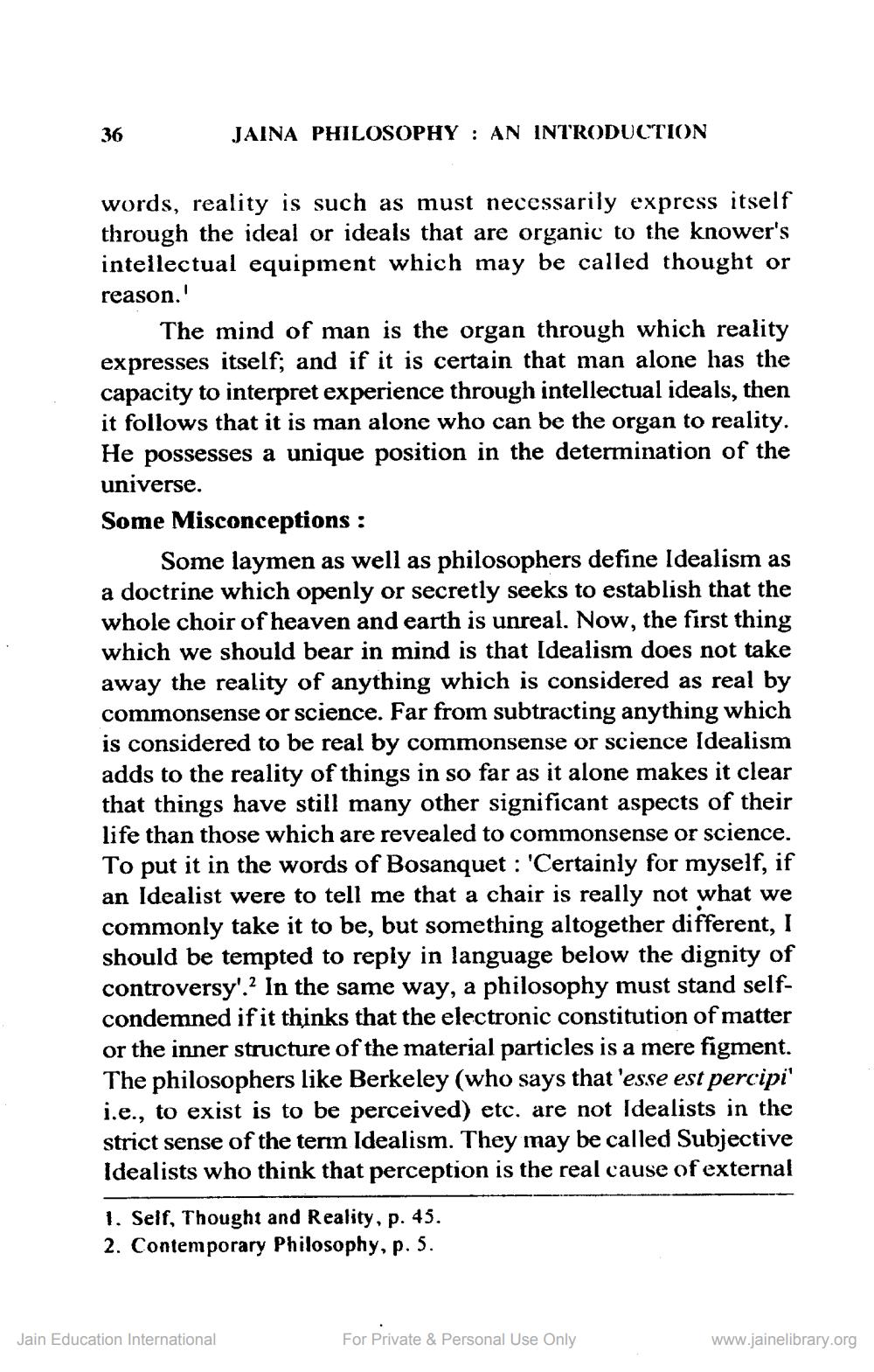________________
36
JAINA PHILOSOPHY: AN INTRODUCTION
words, reality is such as must necessarily express itself through the ideal or ideals that are organic to the knower's intellectual equipment which may be called thought or
reason.
1
The mind of man is the organ through which reality expresses itself; and if it is certain that man alone has the capacity to interpret experience through intellectual ideals, then it follows that it is man alone who can be the organ to reality. He possesses a unique position in the determination of the universe.
Some Misconceptions:
Some laymen as well as philosophers define Idealism as a doctrine which openly or secretly seeks to establish that the whole choir of heaven and earth is unreal. Now, the first thing which we should bear in mind is that Idealism does not take away the reality of anything which is considered as real by commonsense or science. Far from subtracting anything which is considered to be real by commonsense or science Idealism adds to the reality of things in so far as it alone makes it clear that things have still many other significant aspects of their life than those which are revealed to commonsense or science. To put it in the words of Bosanquet : 'Certainly for myself, if an Idealist were to tell me that a chair is really not what we commonly take it to be, but something altogether different, I should be tempted to reply in language below the dignity of controversy'.2 In the same way, a philosophy must stand selfcondemned if it thinks that the electronic constitution of matter or the inner structure of the material particles is a mere figment. The philosophers like Berkeley (who says that 'esse est percipi' i.e., to exist is to be perceived) etc. are not Idealists in the strict sense of the term Idealism. They may be called Subjective Idealists who think that perception is the real cause of external
1. Self, Thought and Reality, p. 45.
2. Contemporary Philosophy, p. 5.
Jain Education International
For Private & Personal Use Only
www.jainelibrary.org




